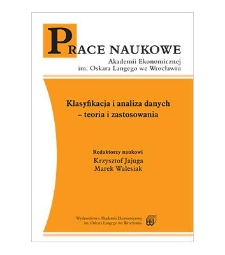Dolnośląska Biblioteka Cyfrowa udostępnia 103 241 obiektów cyfrowych
Obiekt
Tytuł: Próba analizy efektywności wybranych strategii gospodarczych dla krajów rozwijających się
Tytuł odmienny:
An Attempt the Analysing of Effectiveness of Some Economic Strategies for Developing Countries
Autor:
Opis:
Prace Naukowe Akademii Ekonomicznej we Wrocławiu; 2005; nr 1071, t. 2, s. 145-152
Abstrakt:
Wydawca:
Wydawnictwo Akademii Ekonomicznej im. Oskara Langego we Wrocławiu
Miejsce wydania:
Data wydania:
Typ zasobu:
Identyfikator zasobu:
Język:
Powiązania:
Prace Naukowe Akademii Ekonomicznej im. Oskara Langego we Wrocławiu; 2005; nr 1071. T. 2 ; Polska w rozszerzonej Unii Europejskiej - uwarunkowania i perspektywy rozwoju
Prawa:
Wszystkie prawa zastrzeżone (Copyright)
Prawa dostępu:
Dla wszystkich w zakresie dozwolonego użytku
Lokalizacja oryginału:
Uniwersytet Ekonomiczny we Wrocławiu
Źródło finansowania:
Tytuł publikacji grupowej:
Prace Naukowe Akademii Ekonomicznej im. Oskara Langego we Wrocławiu
Kolekcje, do których przypisany jest obiekt:
- Dolnośląska Biblioteka Cyfrowa > Zasoby > 2. Czasopisma > Czasopisma współczesne
- Dolnośląska Biblioteka Cyfrowa > Dziedziny nauki > 5. Nauki społeczne
- Dolnośląska Biblioteka Cyfrowa > Uczestnicy Konsorcjum > 04. Uniwersytet Ekonomiczny we Wrocławiu > Czasopisma wydawane przez Wydawnictwo UEW > Prace Naukowe Akademii Ekonomicznej we Wrocławiu
Data ostatniej modyfikacji:
22 sty 2025
Data dodania obiektu:
16 sty 2025
Liczba wyświetleń treści obiektu:
3
Wszystkie dostępne wersje tego obiektu:
https://dbc.wroc.pl./publication/168845
Wyświetl opis w formacie RDF:
Wyświetl opis w formacie OAI-PMH:
| Nazwa wydania | Data |
|---|---|
| Próba analizy efektywności wybranych strategii gospodarczych dla krajów rozwijających się | 22 sty 2025 |

























